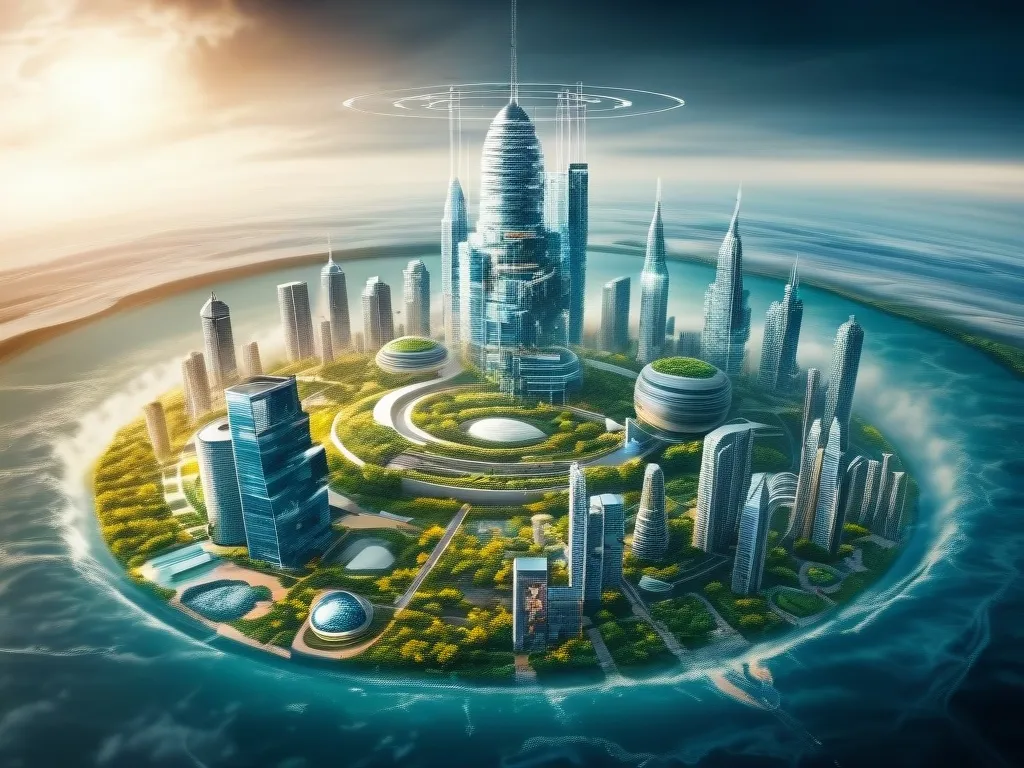As we navigate the complexities of the 21st century, it’s becoming increasingly clear that climate change is not just an environmental issue, but a profound force reshaping the very fabric of our global economies and cultural practices. This silent evolution is often overlooked, yet it is fundamentally altering how we live, work, and interact with one another.
Economic Realities
The economic impact of climate change is staggering. A recent study estimates that a 1°C increase in global temperature could reduce world GDP by a whopping 12%. This is far more severe than previously thought, and it underscores the critical need for immediate action. The damage is not just theoretical; it’s already being felt. For instance, the 2011 floods in Thailand caused damages equivalent to around 10% of the country’s GDP, while the 2018 wildfires in California resulted in losses of up to $350 billion, or 1.7% of the U.S. GDP.
Climate change is also redefining the pursuit of economic development, particularly in poorer countries. These nations, already grappling with higher temperatures and more frequent extreme weather events, face significant challenges in achieving economic growth. The transformation of poor economies into prosperous ones is now complicated by the need to adapt to a changing climate. This means that economic development is no longer just about meeting basic needs but also about ensuring security and resilience in the face of increasing environmental shocks.
Industry Adaptations
Industries across the globe are being forced to adapt to new ecological realities. Agriculture, for example, is one of the most vulnerable sectors to climate risk. Rising temperatures and changing precipitation patterns are reducing crop yields and altering the growing seasons of various crops. In the United States, every degree Celsius increase in global temperature is projected to result in a 5 to 15% decrease in overall crop production. This not only affects farmers but also leads to higher food prices for consumers.
Infrastructure is another area where climate change is having a profound impact. Extreme weather events like hurricanes, floods, and wildfires are damaging critical infrastructure, disrupting supply chains, and affecting economic activity. For instance, the Southeast and Southern Great Plains regions in the U.S. are expected to see a decline in productivity due to heat exposure, resulting in significant economic losses.
Cultural Shifts
Beyond the economic realm, climate change is subtly altering cultural traditions and practices. In many communities, age-old customs and rituals are being reshaped in response to changing weather patterns. For example, in some African countries, traditional farming practices are being adapted to accommodate more unpredictable rainfall and longer droughts. This includes the use of drought-resistant crops and innovative irrigation systems, which not only help farmers survive but also preserve cultural heritage.
In the Arctic, the melting of sea ice is opening up new shipping lanes and creating new economic opportunities, but it is also affecting the traditional way of life for indigenous communities. The loss of sea ice is altering hunting patterns and threatening the very existence of some species that these communities depend on for survival. This cultural ingenuity in the face of environmental challenges is a testament to human resilience but also highlights the profound impact of climate change on cultural practices.
Global Inequality
The impact of climate change is not uniform; it disproportionately affects certain regions and communities. Countries with already warm climates are experiencing dramatic falls in productivity, making it harder for them to achieve economic convergence with richer nations. This exacerbates global inequality, as poorer countries face greater challenges in recovering from climate-related shocks due to their weaker institutions.
In Asia, for instance, economies are particularly vulnerable to the physical risks associated with global warming. Countries like Malaysia, Thailand, India, the Philippines, and Indonesia are among the most susceptible, with potential GDP losses ranging from 4.2% to 37.4% depending on the severity of temperature increases.
Economic Innovations
Despite the challenges, climate change is also driving economic innovations. The transition to a zero-carbon economy is creating new business opportunities and industries. For example, the demand for renewable energy technologies, sustainable infrastructure, and climate-resilient construction materials is on the rise. Biotech companies are developing new crops resistant to climate change impacts, while pharmaceutical companies are preparing for increased demand for drugs to combat diseases like malaria and dengue fever.
The financial sector is also evolving, with a growing focus on sustainable investments and climate risk management. Equity investors are increasingly paying attention to climate change physical risks, recognizing that these risks can significantly impact corporate balance sheets and investment portfolios.
Global Cooperation
The fight against climate change requires global cooperation and a unified approach. The United Nations’ Sustainable Development Goals (SDGs) provide a framework that integrates economic development and climate action. However, the implementation of these goals is complex and requires significant investment in green technologies, infrastructure, and social justice initiatives.
The Paris Agreement and net-zero emission targets are critical in mitigating the worst impacts of climate change. If these targets are met, the global economy could avoid losses of up to 18% of GDP by mid-century. However, if no action is taken and temperatures rise by 3.2°C, the economic consequences could be catastrophic.
Personal and Community Resilience
As individuals, we often feel overwhelmed by the scale of the climate crisis, but our personal actions and community resilience are crucial. From adopting sustainable lifestyles to supporting climate-conscious policies, every effort counts. In many communities, local initiatives are emerging to adapt to climate change, such as community-led conservation projects and innovative agricultural practices.
For instance, in some parts of Africa, community-based initiatives are focusing on reforestation and soil conservation, not only to mitigate the effects of climate change but also to preserve traditional knowledge and cultural practices. These grassroots efforts are a testament to the power of community action in the face of global challenges.
Conclusion
Climate change is quietly sculpting our shared future, influencing economic strategies and cultural practices in profound ways. As we move forward, it’s essential to recognize the interconnectedness of economy, culture, and the environment. By embracing this reality and working together, we can mitigate the worst impacts of climate change and create a more resilient, sustainable world for all.
The journey ahead will be challenging, but it is also filled with opportunities for innovation, cultural ingenuity, and global cooperation. As we adapt to the new ecological realities, we must remember that our actions today will shape the world we live in tomorrow. The quiet currency of climate change is reshaping our world; it’s time we acknowledge and respond to this silent evolution with urgency and determination.






